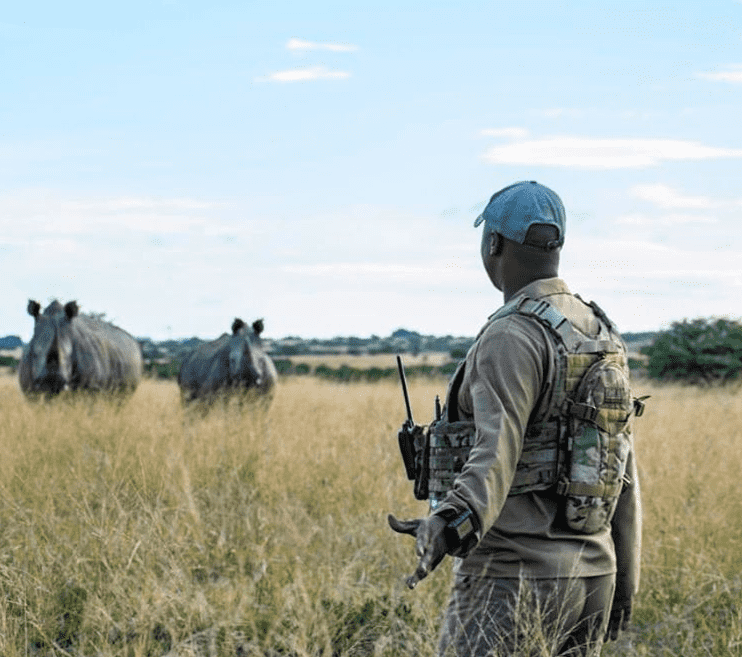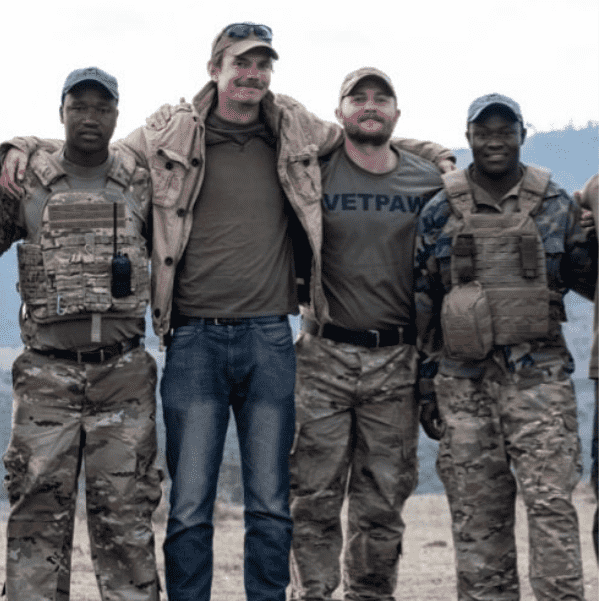Saving Earth: Meet VETPAW, the group of US Marine veterans who fight poaching and protect African wildlife

Planet Earth is in dire need of solutions. Astronomer Carl Sagan once said that we have a responsibility "to deal more kindly with one another, and to preserve and cherish the pale blue dot, the only home we've ever known". Our campaign Saving Earth focuses on nature and wildlife conservation and this column will feature stories on the pressing needs of our planet and hopefulness of our fight.
Africa is home to a wide array of wildlife, and unfortunately, many of these magnificent creatures fall prey to poaching. Illegally taking animals from the wild also threatens many of these species with extinction. Poaching is a serious problem in Africa, with many wild animals being killed or captured from their habitats or endemic regions. It also provides organized crime syndicates and violent extremists with revenue. Poaching poses a grave threat to elephants, rhinos and other animals including smaller invertebrates such as lizards and monkeys. One night, after stumbling upon the barbaric reality in Africa in a documentary on television, a US Marine veteran swore to dedicate his life to a new fight. While no stranger to battle, he took on a new mission and with his fellow veterans, formed the non-profit Veterans Empowered to Protect African Wildlife (VETPAW).
"On the show, there were some poachers, and instead of shooting the animal, they got a hold of a shootable tranquilizer. It doesn’t make a loud gunshot noise," Ryan Tate, the founder of VETPAW told Grit Daily. "They darted a female rhino. She went to sleep and they hacked her horn off," he explained the horrifying scene that he had witnessed on screen. "She woke up and conservationists found her and wanted to help, but she kept running. She was confused. She was scared. The rhino ended up bleeding out and dying," he said. The documentary had scarred him to the point he felt compelled to take action. He left his job at the US State Department providing security to foreign diplomats and jet-setted to the African wild.
He used his connections to secure a place with the federal wildlife parks in Tanzania. His first task was to find out what skill sets the park rangers possessed and realized that they excelled at tracking animals but lacked medical training necessary for an operation located miles away from the nearest hospital. Combining this information with his military skills, Tate formulated an effective training program to enhance the expertise of the park rangers. In addition, he planned to take US Military veterans to Africa, to lead the war against wildlife crime. "My idea was to take veterans to Africa to help fight poaching," Tate said. "So, it would help vets, create jobs, and help animals." Fearless, highly trained soldiers who served and fought for the US overseas, were now on the frontline of another raging battle, to stop wildlife poaching.

Wildlife park rangers in Africa faced a myriad of problems, the main being that they are often the only line of defense between animals and poachers. The fact of the matter is that poachers are downright dangerous, and rangers are usually left overwhelmed, even out-gunned. The parks are supposed to be a safe haven for elephants, rhinoceroses and other wild animals, yet rangers would end up short-handed. "Wildlife trafficking is one of the top five international crimes," Tate said. "Rhino horns and elephant tusks are very much part of this. When you start messing with their bottom lines, which could be a million dollars for one horn, you get some very dangerous people who take notice.” Conservation groups have estimated that at least dozens of rangers lose their lives while on the job each year. Tate knew he would be putting his life and those of his veteran team members on the line when he started VETPAW.
A kilogram of rhino horns is reportedly worth $65,000, with demands coming from East Asia where the animal horn is seen as both a medicine and a status symbol. The international nexus for poaching is rather sophisticated, where networks link poor South African village with traffickers and then people who buy it. Even law enforcement conveniently turns a blind eye as corruption continues. Tate and the US vets began training the rangers themselves under the training program, where a part includes security assessments to scour out any vulnerable areas that serve as gateways for poachers to enter undetected. Some VETPAW members accompany rangers equipped with night visions copes and military equipment to identify poachers and stop them in their tracks.
In addition to teaching the rangers, VETPAW also goes out into the community to educate residents about the devastating effects of poaching and the role they can play in ending it. The poaching top dogs sometimes pay villagers, who are grappling with economic instability to support their family, big money to kill an elephant and rhino. VETPAW's aim is to teach locals that by doing so, not only are they harming wildlife but also risking getting arrested or killed. The team of veterans also tries to work with neighborhoods in identifying local poachers and having them arrested. "We did a lot of undercover investigation and helped local law enforcement," Tate said. Over the past year, Tate and his team of over 30 post-9/11 veterans trained the rangers and patrolled up to 100,000 acres.

Tate recalls with immense pride the times he spent sleeping in the forest with rangers while trying to get his organization together. “You see veterans becoming conservationists,” Tate said. “They’ve found something amazing. I’m super proud of that. It’s so powerful. It’s very rewarding.” The veterans work tirelessly to conserve critically endangered African species, and their communities and ecosystems. For someone like Tate, who went from fighting in the trenches to heading the battle against poaching in the African wildlife, the self-funded mission has helped him attain post-war peace. VETPAW has also changed the lives of dozens of other veterans while helping to save countless high-risk animals. Safe to say, without the non-profit's dedication and help, these animals would have been well on their way to becoming extinct. "Doing what I’m doing saved me. It gave me a happy purpose to use my trauma in life to help another species,” Tate asserted.










